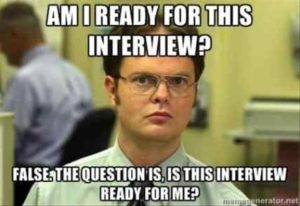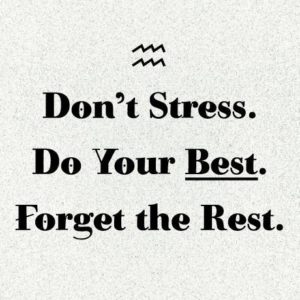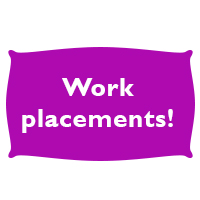Studying a four-year degree with Work Abroad or Industrial Placement? Planning to move onto this programme? Keep reading, this post may be your lifebelt.
Work placements are a great way to kick-start your career, realise your potential and find the path that is right for you. I’m currently on a ‘Sustainability with French with Work Abroad’ programme, though I’ve recently become more interested in work placements in the UK simply because I think it’s quicker and easier to find opportunities in my field in the UK.
But what is a placement anyway?
Work placements or industrial placements are usually 12-month schemes offered by many employers that enable undergraduates to acquire valuable experience by spending a year in the industry. It’s specific to the UK, so if you were to look for opportunities in other countries you might want to use ’intern’ or ’internship’ (or equivalent in other languages) rather than ‘placement’ as keywords.
Good to know: Degree programmes that involve a year-long work placement are sometimes referred to as sandwich courses.
Resources to help you along the way
I could write an awful lot about how to write a CV and cover letter, though I don’t think I could say anything that you haven’t heard before or couldn’t find among the following resources.
The only thing I want to emphasise here is that don’t be afraid to ask for guidance!
Ask the Career Zone
The Career Zone is the University’s careers support service that provides guidance through every stage of your career planning. On Streatham Campus they are located in the Forum and they have plenty of resources available at their desks as well as online. In addition, you can attend employer talks, participate in workshops aimed to improve your skills or book appointments to have your CV checked, discuss your career options or get some advice on how to find internships. Read more about the countless opportunities they offer here.
I was quite demotivated about my work placement in early October because I felt lost and didn’t know where and how to start the process. I booked a ‘Global Employability’ consultation, as I was planning to apply for placements abroad at the time, and got an appointment within a week. It’s important that you do some research beforehand; explore your interests and familiarise yourself with some of the career options you might have! Browse through the University’s Careers section to get a sense of which career sector might be the one for you and find out how and where to look for opportunities! The Career Consultant won’t search for vacancies for you or write your cover letter. What they will do though is to help put you on the right track to realise your potential and find the career path that suits you. Consultations last about 20 minutes and your consultant will provide you with some notes about the key points you discussed, which you’ll have access to through My Career Zone.
My appointment was really helpful in clarifying my prospects and figuring out what to do next. I was given advice on employment conditions in the countries I was interested in and on schemes that I could get involved in to enhance my employability. I was also advised to connect with Exeter alumni to find out what it’s like working in my area of interest, as well as to find further opportunities.
Useful resources
In addition to the ones already mentioned, the Career Zone has a large database of other resources, be sure to check them out! They also have several links that you can use if you’re stuck in the process. Here are the ones that I found particularly useful:
- Graduate Jobs in Europe – (not just for graduates) If you’re considering working abroad, this is a great website that provides information on different countries and lists the most popular companies among undergraduates.
- LinkedIn Alumni Tool – Make sure your LinkedIn profile is up to date and do make the most of the Alumni Tool, which allows you to find graduates in specific subjects from the University and see who they work for. I got a volunteering opportunity through using this tool, which was very relevant to my degree and gave me an insight into the sector I’d like to work in.
- Cover letter advice
I also recommend booking an appointment with a Career Consultant at an early stage (you can do so in person, by phone or via email) so you can talk through your opportunities.
How to apply
Here’s a sketch of the most important steps of the application process and the most common methods employers use to assess applicants. Bear in mind that this varies depending on the position and the company you’re applying for.
Research. I underestimated the weight of this step and the time it would take. It’s crucial to do your research before immersing yourself in the process. Take some time to explore what areas interest you, what roles might be suitable for you, what type of company you want to work for and in which country. It’s easier to write cover letters when you’re applying for a position that you’re actually interested in.
Looking for positions. Once you know whether you want to work in the UK or elsewhere, for a small-sized or multinational company and in marketing, HR or finance, you’re off to a good start. You now have an idea of what keywords you want to type in so go for it! You can search for opportunities on My Career Zone (the University’s careers support portal) or careers websites such as Prospects, Indeed or Glassdoor. However, I found it easier to narrow my focus to particular companies and look into the Careers section on their websites. Most big companies in the UK offer work placements and all of their programmes are advertised online. If they don’t have a scheme, then search for vacancies in their Careers page using keywords such as ’intern’ or ’internship’.
Start your application. As I said, the application process varies. Make sure you read carefully how to apply and follow the instructions. In some cases you have to email your CV and cover letter but sometimes the whole process is standardised via the company’s own system. It usually involves filling in your personal details, uploading your CV (and cover letter) and maybe answering some questions regarding your motivations, skills and experience. The first stage may also include an online test aiming to assess your decision-making and numerical skills. This is more common with positions that require strong numeracy skills and/or technical knowledge such as finance, banking or IT. Read more about CVs, cover letters and application forms here.

Interviews and assessment centres. If the employer liked your application, you might get invited to an interview or assessment centre. This is the stage that hugely depen ds on the company and can take different forms. Read more about interviews and assessment centres here.
Aaaaaand if you’re successful…
Congrats, you’ve just landed the job!
What will I gain from it?
Experience, experience, experience. And I’m not just talking about the real working environment where you get to put your knowledge into practice but also that feared and lengthy application process you have to go through. Wouldn’t it be nice to save some time by having some cover letters and sample answers ready to work with when you’re applying for graduate schemes?
Great on your CV. It really enhances your chances when you enter the workforce upon graduation. It demonstrates your curiosity and motivation and shows that you know how things work in real life. Employers do appreciate that. What’s more, you’re likely to get a lot more confident by the time you apply for graduate jobs.
You’ll know if it’s right for you. You don’t want to end up on a 3-year graduate scheme you hate, do you? Work placements are a good way of ensuring you won’t. You may fall in love with the company you work for during your placement or find out that you never want to go anywhere near it again. You’ll face challenges every day, realise hidden strengths and weaknesses of yours and learn to build good working relationships with different people.


